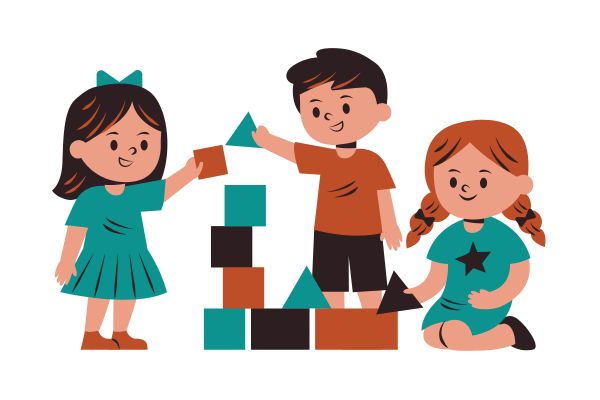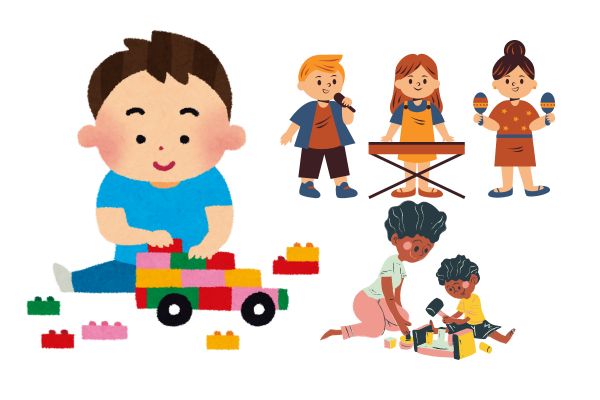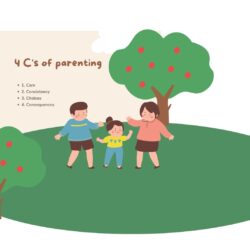Play is so much more than just fun and games—it’s actually one of the most important parts of a child’s development. Whether it’s making new friends in a sandbox, solving puzzles, or role-playing as their favorite superhero, each type of play helps kids build critical skills they’ll use for life. These early interactions encourage emotional, social, and cognitive growth, laying the foundation for everything from communication to creativity. By understanding the different types of play, parents can better support their children’s learning journey in a way that’s enjoyable and effective. Let’s dive into the 16 essential types of play every parent should know about to foster a well-rounded, thriving child.

1. Unoccupied Play (Birth to 3 Months)
This seemingly uneventful gazing and babbling is the foundation for later exploration. Newborns take in information, process sights, and sounds, and develop essential focus skills.
2. Independent Play / Solitary Play (Throughout Childhood)
This isn’t isolation; it’s self-directed exploration. Children build with blocks, draw pictures, or engage in imaginative play, fostering creativity, problem-solving, and independent thinking.
Related: Enchanting World of Solitary Play
3. Symbolic Play (18 Months to 3 Years)
This is where imagination takes center stage. A stick becomes a sword, a blanket, or a tent – objects transform into something else, allowing children to rehearse real-life scenarios and develop language skills as they narrate their play.
4. Onlooker Play (Throughout Childhood
Sometimes, children are content simply observing others at play. This seemingly passive activity allows them to absorb social cues, understand group dynamics, and learn by imitation.
5. Parallel Play (2-3 Years)
This type of play makes playgrounds come alive. Children play alongside each other, perhaps with similar toys, but with minimal interaction. It’s a stepping stone to social play as they observe and learn from each other.
6. Associative Play (3-4 Years)
Here, social interaction starts to bloom! Children play near each other, occasionally sharing toys and space. They might build separate structures with blocks but excitedly chat about their creations.
7. Cooperative Play (4-7 Years)
Teamwork makes the dream work! Children collaborate towards a common goal, building a tower together, putting on a play, or playing a board game. Communication, negotiation, and following rules become vital skills.
8. Dramatic or Fantasy Play (2-7 Years)
Dress-up, pretend tea parties, and elaborate imaginary scenarios are where children step into different roles and explore emotions, relationships, and social situations. This play fosters empathy and creativity.
9. Competitive Play (Preschool and Up)
Not all play needs to be harmonious. Healthy competition teaches children about winning and losing gracefully, setting goals, and striving for self-improvement. Board games, sports, and friendly races are great examples.
10. Physical Play (Throughout Childhood)
Running, jumping, climbing – physical play is essential for developing gross motor skills, coordination, and balance. It also releases energy, promotes healthy growth, and teaches children about their bodies.
11. Constructive Play (Throughout Childhood)
From building with blocks to sculpting with clay, this type of play allows children to express their creativity, experiment with cause and effect, and develop problem-solving skills as they bring their ideas to life.
12. Sensory Play (Birth to Preschool)
This is a feast for the senses! Exploring textures, sounds, smells, and tastes allows babies and toddlers to learn about the world around them. Sensory bins filled with beans, water play, and finger painting are all fantastic examples.
13. Rough and Tumble Play (2-7 Years)
Wrestling, chasing, and playful tickling might seem chaotic, but this type of physical play helps children develop gross motor skills, learn about boundaries, and manage emotions.
14. Communication Play (Throughout Childhood)
From babbling to singing songs and role-playing conversations, all forms of play that involve communication are crucial. Children develop language skills, learn to express themselves clearly and understand social cues.
15. Fantasy Play (Throughout Childhood)
Dragons, fairies, and imaginary adventures fuel fantasy play, which fuels a child’s imagination, creativity, and problem-solving skills. Children explore emotions, rehearse social situations, and learn to think outside the box.
16. Recapitulative Play (Throughout Childhood)
Children often revisit past experiences through play. They might act out a doctor’s visit, a trip to the zoo, or a disagreement. It allows them to process emotions, understand events, and develop coping mechanisms.
Final Words
Understanding these different types of play can really make a difference in how you support your child’s growth. Each type offers unique benefits, helping children become more socially aware, emotionally resilient, and mentally agile. Whether they’re pretending, building, or just running around, every playtime has a purpose. Encourage variety in their play to give them the best start possible—and remember, it’s okay to join in! After all, some of the best life lessons come from shared laughter and a bit of fun.





